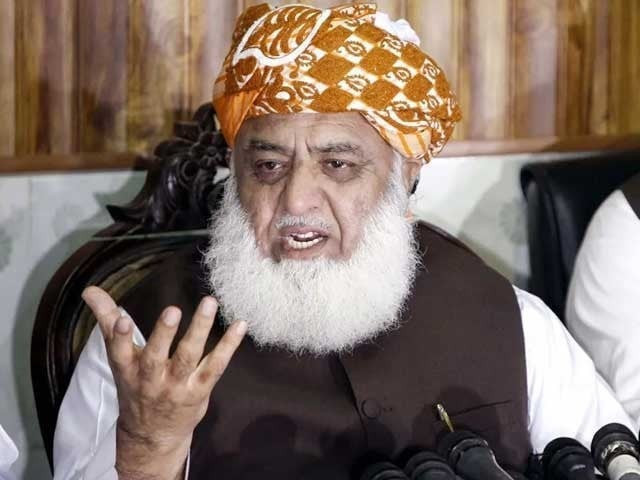Fazlur Rehman condemns 'fake parliament,' rejects its authority to make significant amendments
JUI chief says despite repeated claims of election mandate theft, party remains firmly grounded in the public sphere

In his first press conference as the newly-elected Amir of Jamiat Ulema-e-Islam (JUI), Maulana Fazlur Rehman stressed the need for consensus among political parties, including the JUI, Pakistan People's Party (PPP), and Pakistan Tehreek-e-Insaf (PTI), to draft proposed electoral reforms.
Following the intra-party elections in which he was elected unopposed, Rehman noted that JUI conducts member registration every five years, followed by elections, with the recent polls marking the final stage of organisational restructuring. He highlighted that the party's president and general secretary were also elected unopposed.
He reiterated that despite repeated claims of election mandate theft, JUI remains firmly grounded in the public sphere. He criticised the current Parliament, asserting that it does not deserve to enact significant amendments, arguing that changes should not come from what he termed a "fake parliament." He stressed that amendments should not focus on individual personalities.
The JUI leader lamented the lack of legitimate governance at both the federal and provincial levels, describing the existing administrations as "false governments." He called for judicial reforms and urged constitutional avenues to protect fundamental rights.
Addressing recent comments from Khyber-Pakhtunkhwa's (K-P) Chief Minister Ali Amin Gandapur, Rehman dismissed their significance, stating that such statements from a chief executive are immature.
He also argued that preventing political gatherings is undemocratic and that PTI should be allowed to hold its events. He cautioned against provincial governments interfering in the political affairs of other provinces, asserting the need for unity.
Highlighting the ongoing turmoil in K-P, he pointed out that tribal delegations, including from Kurram, have approached the party, stating that conditions before the integration of tribal areas were better. He remarked on the injustices faced by the people of FATA and Balochistan, citing a deteriorating security situation.
Rehman recalled a meeting with former prime minister Shahid Khaqan Abbasi, who had reportedly agreed to withdraw certain points but succumbed to US pressure regarding the integration decision, which he believes has resulted in significant injustices against tribal communities. He argued that the tribal areas should have received Rs800 billion, but instead, they received less than Rs100 billion.
Commenting on the situation in the Middle East, he urged Arab nations to recognise that Israel seeks to escalate the conflict, which could engulf the entire Arab world.
In conclusion, he praised Prime Minister Shehbaz Sharif’s recent speech at the United Nations General Assembly as evidence of Pakistan's resilience, advocating for collaboration among Pakistan and other Islamic nations on a common platform.



















COMMENTS
Comments are moderated and generally will be posted if they are on-topic and not abusive.
For more information, please see our Comments FAQ